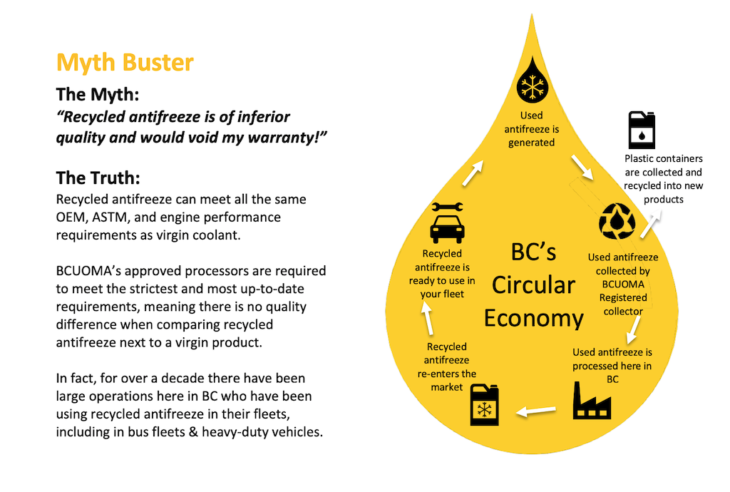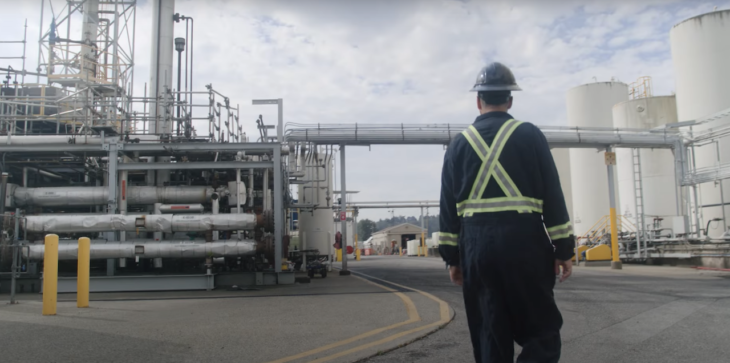The OGM Interactive Edition – Summer 2023 – Read Now!
View Past IssuesGlobal Recycling Day, celebrated on March 18, is an occasion to remind ourselves of the importance of recycling and its role in building a sustainable future. One organization that has been actively involved in promoting the circular economy in British Columbia (BC) is the BC Used Oil Management Association (BCUOMA). With over 20 years of experience in collecting and recycling used motor oil, oil filters, oil containers, antifreeze, and antifreeze containers, BCUOMA has been contributing to environmental, social, and economic sustainability through its closed-loop system.
BCUOMA’s recycling programs help in achieving environmental sustainability by diverting waste from landfills and recycling it into functional products. The collected materials are reprocessed and repurposed, re-entering the market as the same functional products, thus reducing the need for virgin materials. For example, used lubricating oil is re-refined and turned back into the new motor oil, which is sold again to consumers through wholesalers and retailers in BC. By using re-refined base oils, BCUOMA reduces the carbon footprint without sacrificing quality or performance, requiring fewer resources compared to oil manufactured without recycled content.
BCUOMA’s recycling programs also contribute to economic sustainability by keeping the collection and a significant amount of the processing within the province of BC. BCUOMA’s registered collectors pick up used oil from across BC and transport it to a refinery for processing, including one located in North Vancouver. This closed-loop process allows processors to produce oils that meet or even exceed industry specifications without drilling for new crude oil, thus creating a more sustainable oil supply chain.
BCUOMA’s recycling programs support social sustainability by providing jobs and supporting Indigenous and remote communities in BC with managing waste. BCUOMA works with local and regional governments, Indigenous communities, registered processors and collectors, and public recycling facilities to establish these free-to-the-public programs.
BCUOMA’s programs are an example of how a regulated Extended Producer Responsibility (EPR) program can support private sector innovation and use proven technologies to develop economic growth and support a circular economy in BC. EPR is a policy approach that holds producers responsible for the end-of-life management of their products and packaging. BCUOMA works with manufacturers and first sellers of oil and antifreeze products to ensure that all British Columbians have a convenient, free, and eco-friendly way to recycle program materials.

On Global Recycling Day, it’s crucial to recognize the efforts of organizations like BCUOMA that are driving the circular economy forward with their innovative recycling programs. By promoting environmental, social, and economic sustainability, BCUOMA is creating a more resilient and prosperous future for BC.

To find a public recycling center near you, visit https://bcusedoil.com/find-a-recycling-centre.
Did you enjoy this article?